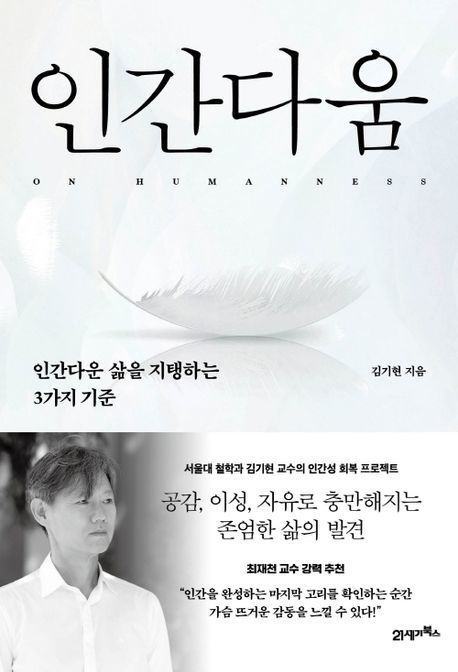Physical Address
304 North Cardinal St.
Dorchester Center, MA 02124
Physical Address
304 North Cardinal St.
Dorchester Center, MA 02124

In the face of urgent threats such as climate change, environmental destruction, deepening inequality, and rapid advancements in science and technology, questions about the essence of humanity are being raised. The emotional response to this loss of humanity is not limited to the present but has resonated throughout history, spanning from the 18th to the 20th century.
The book “인간다움” (Humanity) redefines the concept of humanity, tracing the chronological journey of humankind’s civilization. It delves into various elements that shape human nature, emphasizing the most significant and exceptional factors.
According to Kim Ki-hyun, a philosophy professor at Seoul National University and the author of the book, the core values of humanity are empathy, reason, and freedom. These pillars enable communication with others, foster rational thinking, and serve as the driving force behind the formation of norms through freedom.
The book provokes thoughts such as “Who am I, and what factors contribute to my identity?” It emphasizes that our present selves are the culmination of past choices and that our future is shaped by the actions we take today. It underscores the fact that the future awaiting us is contingent upon how we live in the present.
The conventional belief that morality, constructed by reason, distinguishes humans from other animals, is facing various challenges in the modern era. The distinction between humans and animals is becoming increasingly blurred, and morality is being reduced to survival mechanisms and economic structures. Consequently, morality itself is criticized for weakening humanity.
The loss of humanity is a crisis in the saturated state of the modern world. Climate change, environmental destruction, deepening inequality, and rapid advancements in science and technology contribute to this crisis. These issues pose a serious threat to our understanding of the meaning of humanity.
“인간다움” presents a new perspective on the concept of humanity, urging us to reflect on our values and choices. By understanding empathy, reason, and freedom, and embracing inclusivity, we can navigate the challenges of the modern era and redefine humanity.
The book emphasizes that the choices we make today play a central role in determining the future that awaits us. In the face of challenges such as climate change, environmental destruction, inequality, and technological advancements, preserving humanity and striving for a better future are of utmost importance.
The loss of humanity is not a new phenomenon but a recurring problem throughout history. By reassessing and redefining the concept of humanity, we can navigate the complexities of the modern world and advocate for the values of empathy, reason, and freedom.
It is crucial to remember that our actions today define the future that awaits us. “인간다움” serves as a guiding light, encouraging us to embrace humanity and strive towards a brighter tomorrow.
If you’re wondering where the article came from!
#